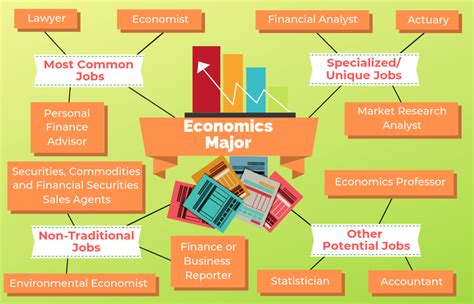Introduction
In today’s dynamic economic environment, a solid foundation in economics is essential for navigating the complexities of the global marketplace. Florida State University (FSU) offers a rigorous and well-rounded Economics major that prepares students for fulfilling careers in various sectors. This comprehensive guide will delve into the program’s curriculum, career prospects, and the multifaceted benefits it offers.

Curriculum Structure
The FSU Economics major curriculum provides a comprehensive understanding of economic principles and their application in real-world settings. Students begin with a foundation in microeconomics, macroeconomics, and econometrics. As they progress through the program, they specialize in areas of interest such as:
- Public Economics
- Health Economics
- International Economics
- Economic Development
Core Courses
The core courses lay the groundwork for economic analysis and provide a solid understanding of:
– Economic Theory
– Economic History
– Mathematical Economics
– Econometrics
Electives
Students can customize their program with electives that align with their interests. Popular electives include:
– Behavioral Economics
– Environmental Economics
– Game Theory
– Finance
Economics Research
Students are encouraged to engage in independent research under the guidance of faculty mentors. This hands-on experience fosters critical thinking, problem-solving abilities, and communication skills.
Career Prospects
With a degree in Economics from FSU, graduates are well-prepared for a wide range of careers in:
- Finance
- Consulting
- Government
- Non-profit organizations
- Academia
Earning Potential
According to the U.S. Bureau of Labor Statistics, economists earned a median annual salary of $108,350 in May 2021. The top 10% of earners made over $208,000, while the bottom 10% earned less than $56,380.
Benefits of FSU Economics Major
Rigorous Curriculum:
The program’s curriculum emphasizes analytical thinking, quantitative skills, and economic modeling.
Faculty Expertise:
Students learn from renowned economists who actively engage in research and consulting.
Internships and Career Services:
FSU provides ample opportunities for internships, networking events, and career counseling to enhance students’ employability.
Research Opportunities:
Students have access to state-of-the-art research facilities and mentorship from faculty conducting cutting-edge research.
Strong Alumni Network:
Graduates join a vast alumni network of successful economists working in various industries.
Common Mistakes to Avoid
Assuming Economics is Only About Math:
While economics involves quantitative analysis, it also encompasses social sciences and policy.
Neglecting Communication Skills:
Economists need to convey complex ideas clearly and persuasively.
Ignoring Internships and Networking:
Practical experience and industry connections are crucial for career advancement.
Thinking Too Narrowly:
Economics has applications in a diverse range of fields, so consider exploring electives outside your specialization.
FAQs
1. What is the difference between Economics and Finance?
Economics focuses on the allocation of resources and the behavior of economic agents, while finance deals with the management of money and financial assets.
2. Is the Economics major competitive?
Admission to the FSU Economics program is selective, with an average GPA of 3.8 for incoming students.
3. What are the best internships for Economics majors?
Internships at government agencies, financial institutions, and consulting firms provide valuable experience.
4. What is the job outlook for economists?
The U.S. Bureau of Labor Statistics projects a 3% increase in economist jobs between 2019 and 2029.
5. What is the average starting salary for Economics graduates?
According to PayScale, the average starting salary for Economics graduates from FSU is $65,000.
6. What are the highest-paying careers for Economics majors?
Economists working in management, finance, and academia typically earn the highest salaries.
7. What is the most important skill for an economist to have?
Analytical thinking and problem-solving are essential skills for economists.
8. What are some common job titles for Economics graduates?
Economists, financial analysts, market researchers, and policy analysts are common job titles for Economics graduates.
Conclusion
An Economics major from FSU provides a solid foundation for a fulfilling career in a diverse range of industries. The rigorous curriculum, faculty expertise, and ample opportunities for research and internships prepare graduates to excel in their chosen field. By carefully considering the information presented in this guide, prospective students can make an informed decision about pursuing an Economics major at FSU.
